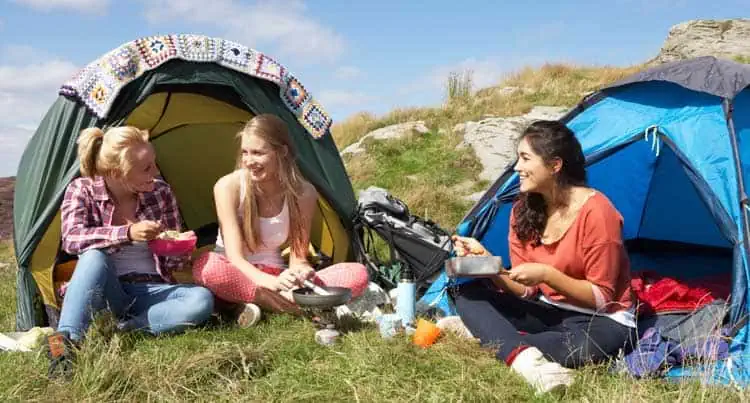Camp Food

One of the good things about freeze-drying is that it causes less damage to the food than other dehydration methods with higher temperatures. Also, freeze-drying does not usually cause shrinkage or toughening of the food (think jerky) being dried. In addition, flavours, smells and nutritional content generally remain unchanged.
In the bad old days of bush-walking, there was often little choice but to carry bulky, heavy camp food. Dried fruit, chocolate, and rice were considered lightweight hiking foods.
The foods you choose for your camping or bushwalking trip will depend on the type of food storage you have, how much you can carry and whether safe water is available to add to camp food.
Some Recommended Camp Food:
- Dry, UHT and products in cans. Bushwalkers usually rely on dried or freeze-dried camp food, which is safe and has the advantage of low weight and bulk. Remember to pack your dried food so it won’t get wet if it rains.
- Canned food is safe to keep at room temperature. However, it tends to be too heavy to carry in any quantity when bushwalking.
- Hard cheeses can be taken without refrigeration or in an insulated cooler. Avoid taking fresh, unmatured soft cheeses unless you have access to refrigeration
- Fresh fruit and vegetables can be taken. However, some will deteriorate quickly in warm weather, so you may need some extra dried or canned varieties for later use. Most foods in cans or jars cannot be stored out of refrigeration once opened. Make sure you buy containers small enough so that all the food is used in one meal.
Extra Precautions:
Perishable foods such as raw and cooked meats, poultry, chilled ready-to-eat foods, dairy foods and boiled eggs are generally unsuitable for camping holidays. Unless you have access to a refrigerator, if you have a cooler that depends on ice or ice bricks for cooling, you should only keep such food for one day unless the cooler can hold the temperature of the food at or below 5 degrees Celsius.
- If you are relying on dried food, ensure access to enough safe water to rehydrate any food that will not be thoroughly cooked before consumption. Remember, water is not necessarily secure, even in remote and pristine wilderness. It can be contaminated by animal faeces and naturally occurring parasites like Giardia. Unless you are sure the water is safe, you should boil all water for at least one minute. (a little longer if you are at high altitudes). Or disinfect it before drinking or using it in powdered drinks or other uncooked foods.
- Avoid creating leftovers: discard them unless you can store them at or below 5 degrees Celsius until they are eaten.
- If you are going bushwalking overnight, you can take a frozen pre-prepared meal (e.g. stew or casserole). Or frozen raw meat for cooking, provided you eat it on the first night. Package the raw meat well, so the juices do not contaminate the rest of your camp food. Bury the package deep in your backpack for extra insulation. Cook or reheat well.

